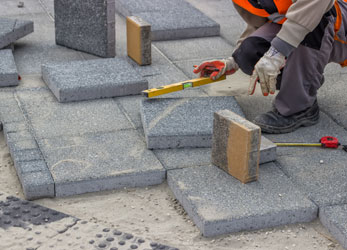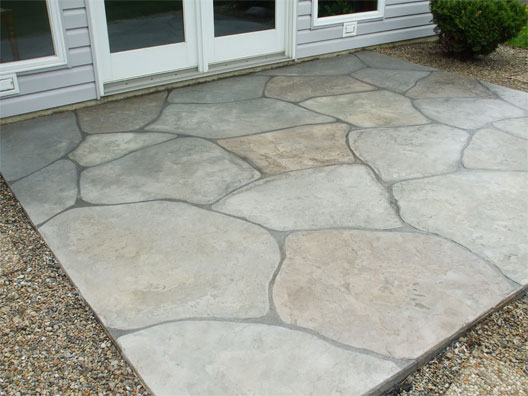Is your home in need of a new driveway, sidewalk, or patio? You may be considering concrete pouring as your repair or renovation solution. Concrete is a strong and durable material that can withstand heavy traffic and weather damage. Plus, it offers a clean and polished look to any home exterior.
If you’re planning on concrete pouring for your home repairs, it’s important to know how to properly maintain your new investment. With the right care, your concrete can last for decades. Here are a few tips on how to maintain your new concrete:
- Wait until the concrete has cured before walking or driving on it. Curing usually takes about 28 days. In the meantime, you can protect your new concrete by placing cones or barriers around it.
- Regularly sweep or hose off your concrete to remove dirt, dust, and leaves. This ensures that your concrete doesn’t become stained or discolored.
- If you notice any cracks, chips, or other damage, repair them as soon as possible. Small repairs can usually be made with a concrete sealant or patch kit.
- Apply a sealant to your concrete every 1-2 years. This will help protect it from weather damage and stains.
- Avoid using harsh chemicals or cleaners on your concrete. Stick to mild soap and water for cleaning.
- If you have any trees or shrubs near your concrete, trim them back regularly. This prevents their roots from damaging your concrete.
- Be mindful of the weight of your vehicles. Heavy cars and trucks can crack or chip your concrete.
You can keep your concrete pouring looking new for years to come by following these tips. If you have any questions about concrete maintenance, contact a local contractor or masonry specialist.
What Does the Concrete Pouring Process Look Like?
If you’re planning on having concrete poured for your home, it’s helpful to know what the process looks like. This way, you can be prepared for the work that will be taking place.
The first step in concrete pouring is to create a stable base. This usually involves excavating the area and adding gravel or sand. Once the base is prepared, the next step is to add any reinforcement materials, such as wire mesh or rebar. These materials help to strengthen the concrete and prevent cracking.
After the reinforcement materials are in place, the next step is to mix and pour the concrete. The concrete mix is typically made from cement, water, and aggregate (sand and gravel). It’s important to use the right ratio of these ingredients to ensure a strong and durable mix. Once the concrete is mixed, it’s poured into the prepared area.
After the concrete has been poured, it will need to be leveled and smoothed. This is usually done with a trowel or float. Once the concrete has been leveled, any decorative elements can be added. This may include stamping, staining, or engraving.
The final step in the concrete pouring process is curing. Curing helps to ensure that the concrete dries evenly and doesn’t crack. It usually takes about 28 days for concrete to cure completely. During this time, it’s important to keep the area clear of traffic and weather damage.
If you’re planning on having concrete poured at your home, it’s important to know what the process looks like. With this information, you can be prepared for the work that will be taking place.
When Should You Call a Professional For Concrete Pouring?
There are many times when it’s best to call a professional for concrete pouring. If you’re not experienced in concrete work, it’s always best to leave it to the experts. Here are a few times when you should call a professional:
- When you need a large area of concrete poured. Trying to pour concrete on your own can be difficult and time-consuming. If you have a large area that needs to be filled, it’s best to call a professional.
- When you need complex concrete work done. If you need stamped, stained, or engraved concrete, it’s best to call a professional. These types of projects require experience and expertise.
- When you’re not sure about the process. If you’re unsure about any part of the concrete pouring process, it’s best to call a professional. They can answer your questions and help you get the job done right.
- When you need it done quickly. Professionals have the tools and experience necessary to get the job done quickly. If you need your concrete project completed in a timely manner, it’s best to call a professional.
There are many times when it’s best to call a professional for concrete pouring. If you’re not experienced in concrete work, it’s always best to leave it to the experts. These are a few times when you should call a professional:
- When you need a large area of concrete poured.
- When you need complex concrete work done.
- When you’re not sure about the process.
- When you need it done quickly.
If you have any questions about your concrete project, don’t hesitate to call a professional. They can answer your questions and help you get the job done right.




